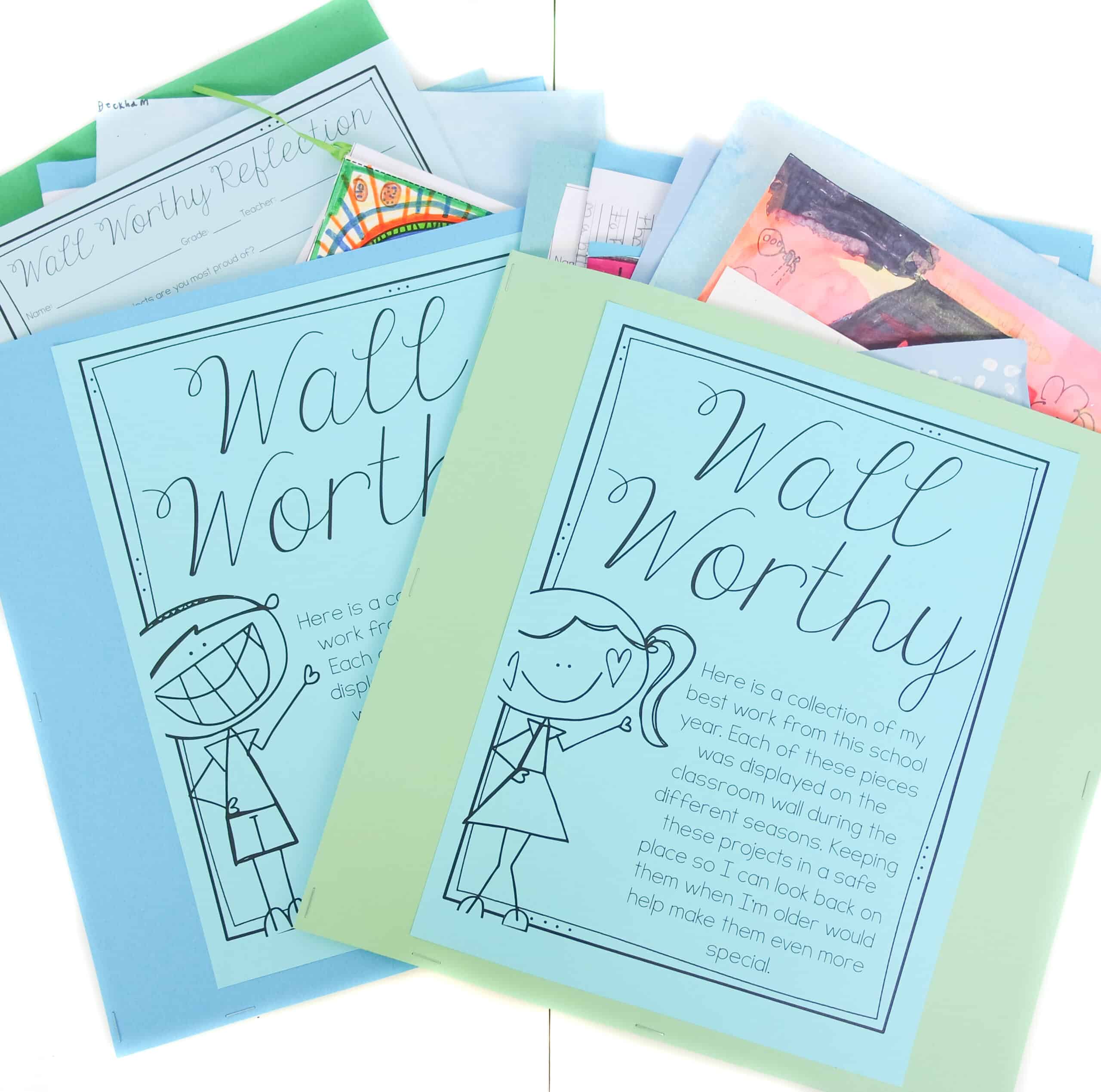
Your math block is likely a time of day when your advanced learners stand out like a sore thumb if you don’t have the resources to keep their brains stimulated. Often times, these learners become disinterested or disengaged because they are bogged down with busy work when they meet expectations and demonstrate mastery early on in a unit. At times this can result in a subject where they demonstrate great talent and ability becoming a student’s least favorite time of the school day.
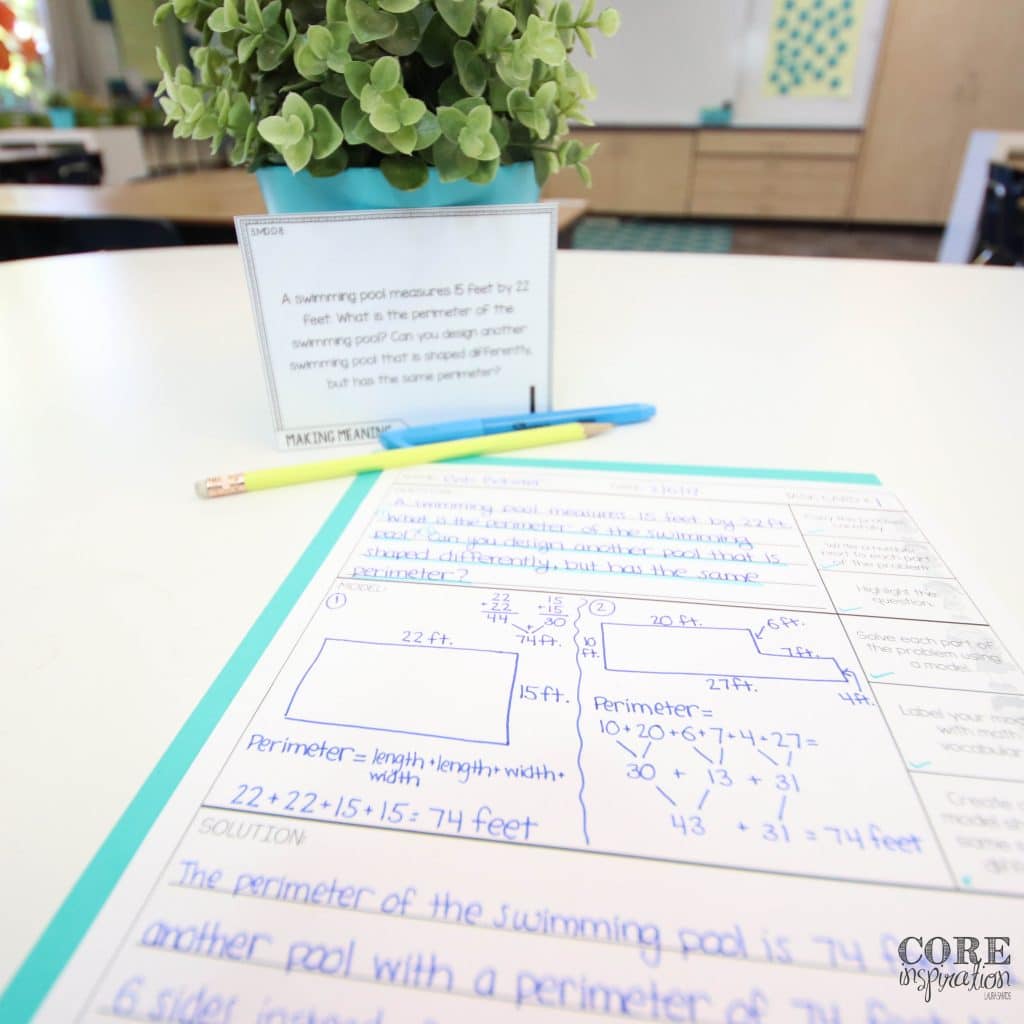
Keeping advanced math minds genuinely engaged requires us as teachers to create an environment where being “done” is not a focal point. Instead, structure your learning block in a way that the entire spectrum of learners has more options than they can possibly complete, and a deep variety of learning activities to demonstrate their understanding each day.
After you’ve built a strong collection of learning activities, create routines and expectations so students can easily navigate through their learning options each day.
Three resources that can help you achieve this goal are differentiated problem solving tasks, project based learning units, and differentiated math game cards.
These in-depth problem solving tasks require students to exercise rigorous problem solving skills as they analyze multi-step word problems, model their math reasoning in multiple ways, and communicate their solution and problem solving process in complete sentences.
Providing multiple task cards for students to choose from gives them more ownership of their learning journey as they select which task they are interested in solving each day. Using these tasks can be especially engaging for advanced learners if you provide them with challenge task options in addition to the already-rigorous making meaning tasks described above.
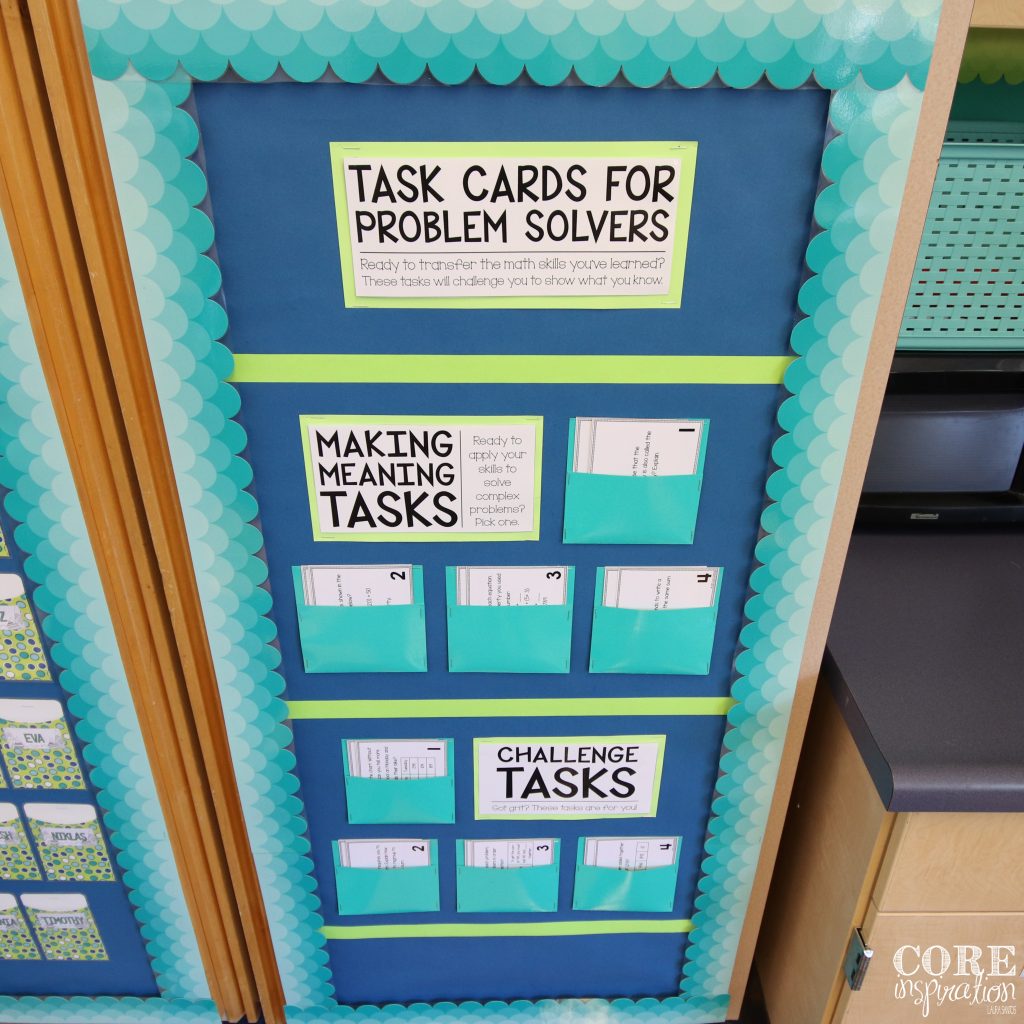
Challenge tasks require students to apply the grade-level skills introduced during your lessons each day, and apply that knowledge to unlock more complex content without direct instruction. Advanced learners find this self-directed learning option highly engaging and enjoy collaborating with peers as they build their own deeper understanding.
Routine problem solving analysis, detailed modeling, written communication practice, self-directed learning opportunities, and tasks that foster collaboration between young mathematicians. Doesn’t that sound a lot more enticing than another worksheet filled with more math problems that build surface-level understanding?
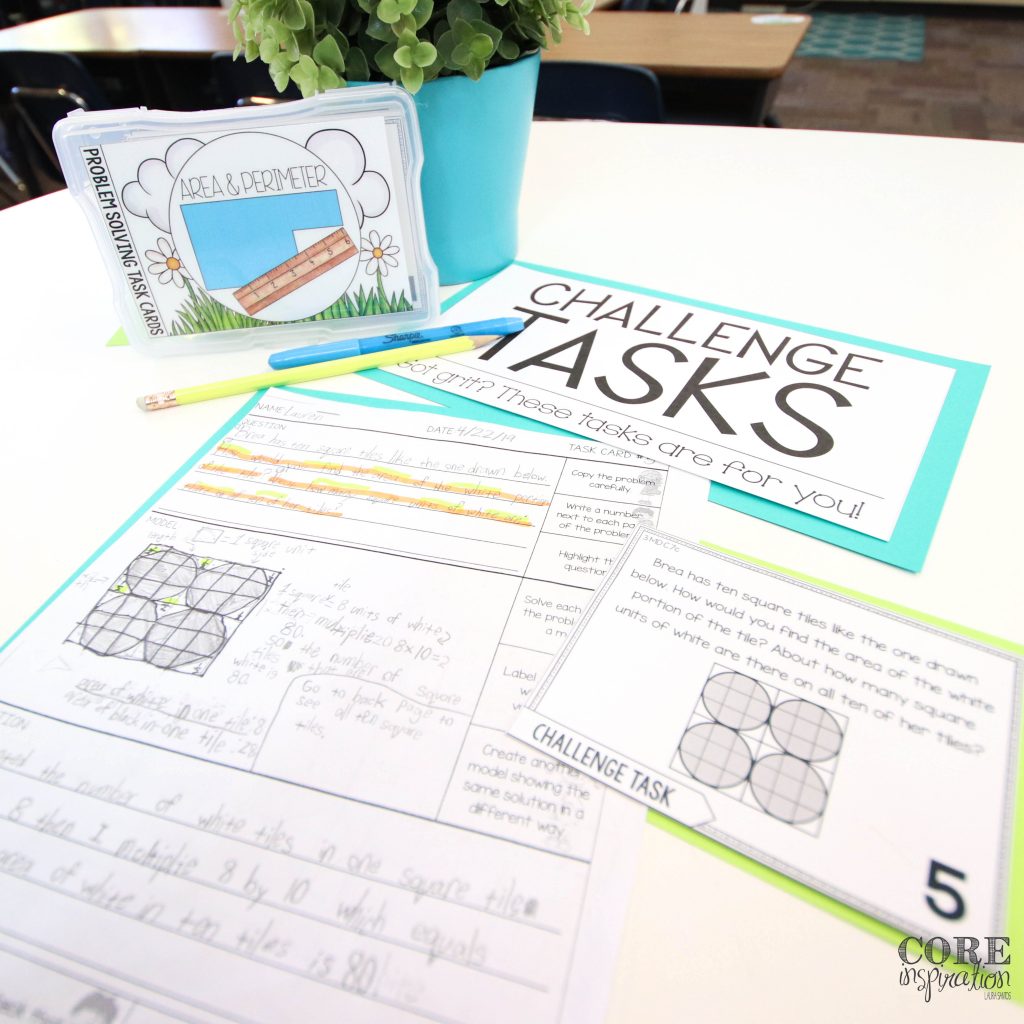
For more information about the exact routine I use to integrate problem solving task cards into our Math Workshop block, read this post.
Imagine you’ve given your pre-assessment and, right off the bat, you have students who demonstrate mastery of the standards you are planning to teach. It happens in almost every classroom. You may consider having these students work on a project rather than completing routine daily math activities.
Students who enjoy exercising their creativity, using long-term time management, interacting with their learning, and using their imagination will be especially engaged by this enrichment option. The challenge with having a few advanced learners working through an enrichment project while you guide the rest of the class toward mastery is the management of two very different types of learning taking place simultaneously during one learning block.
To make this challenge more manageable, search for, or create project instructions and guides that are so detailed it’s as if you are sitting alongside your student each step of the way. These detailed guides will give your advanced learners the opportunity to build their reading comprehension and direction-following skills while applying their math skills to real-world scenarios.
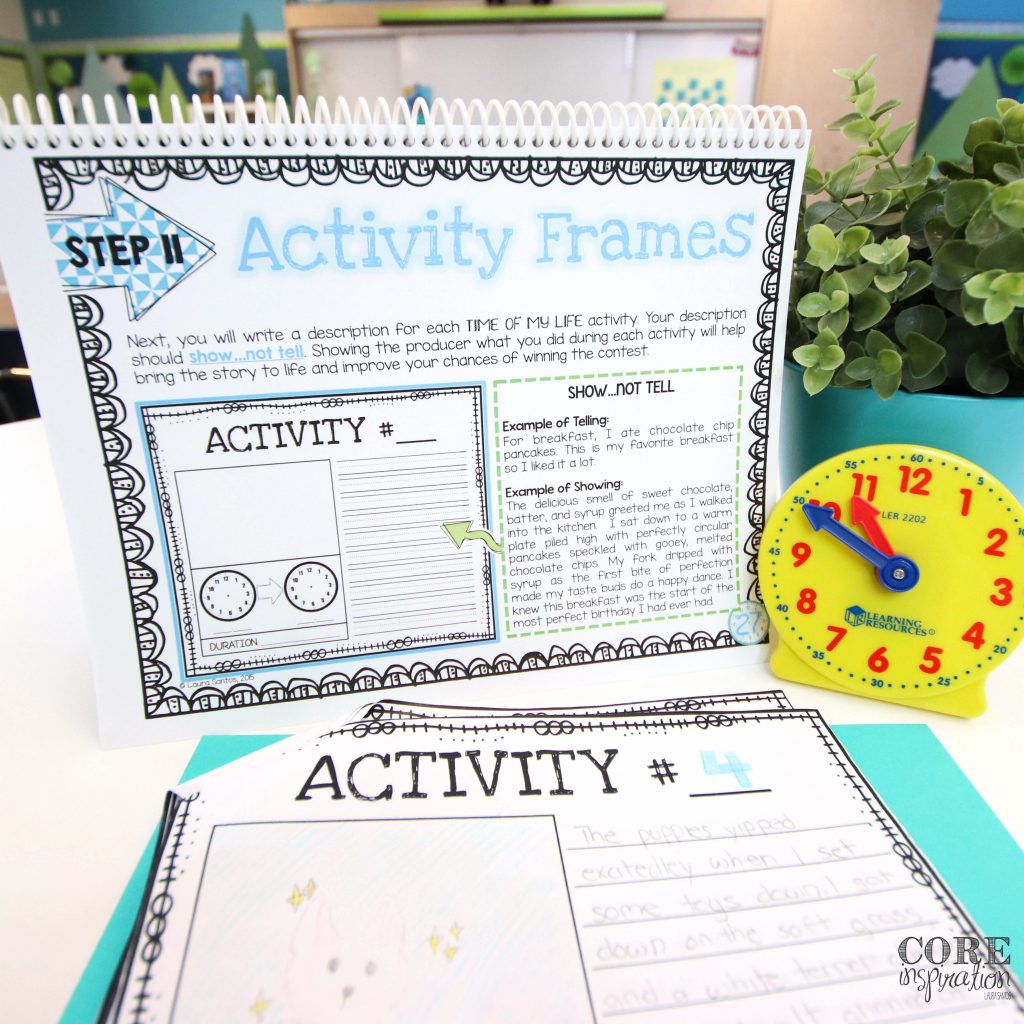
Writing step-by-step project guides is a time consuming process, so you can check out this collection for ready-made options. For more details about how to plan and write this type of project based learning unit, read this post.
Some of your advanced learners enjoy strengthening their understanding of math concepts through game play. To ensure play sessions are exciting for them, be sure to create or curate math games that have options for more challenging levels of play.
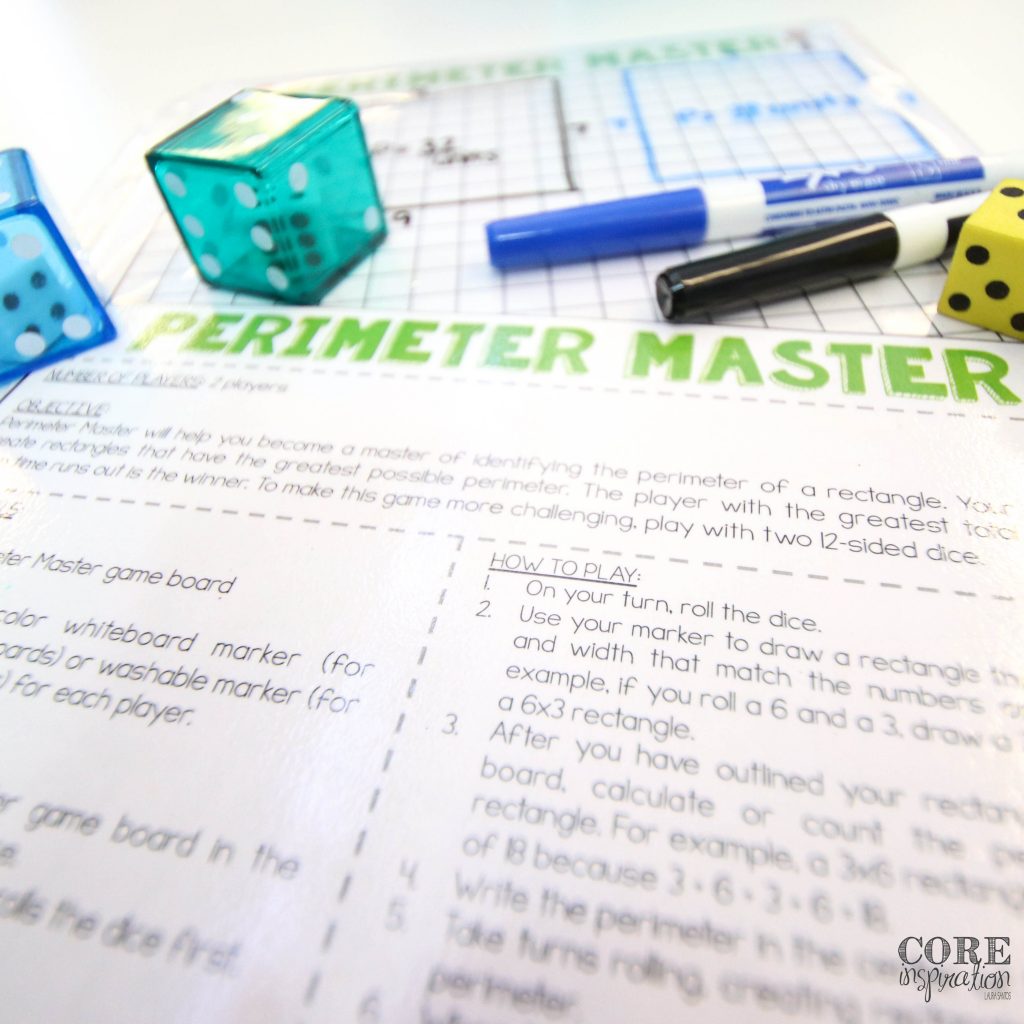
Providing instructions for boosting the level of play right alongside the other game instructions makes is easy for all students to make the transition to a more advanced game version seamlessly. This will also save you time as a teacher because it allows you to teach the game to the entire class together, rather than taking the time to introduce different games to different groups of learners. For a year-long set of games that is already written in this format, check out my Hands-On Math Games.
Are you ready to make math exciting for your advanced learners? You can completely transform their enthusiasm for math by incorporating one or all of the activities outlined above. Your classroom can be a place where young mathematicians look forward to math each day, and are fully engaged in learning activities that exercise and expand their minds in ways that feel creative and fun. Comment below with the any questions you have about differentiated for advanced learners.

I’ve been an elementary teacher for ten years, and love sharing tips and resources that make differentiated learning more manageable for you. Thank you for visiting.
Learn More
Dropping by with weekly tips, classroom strategies, and free content created with you in mind.
Join me and other 2nd through 4th grade educators in the Teaching with Core Inspiration Facebook Group. This is a place to collaborate, ask questions, and learn how teachers like you are using Core Inspiration resources in their classrooms. Hope to see you there!
© 2024 Core Inspiration ∙ Website by KristenDoyle.co
4 Responses
Love your resources! Only wishing you had more for 4th grade 😉
Hi Simone, thank you! I am working on fourth grade content this school year…stay tuned. 🙂
I purchased your task cards, and I would love to create a display like the one you have listed in the example. Do you also have the TASK CARDS, CHALLENGE CARDS, and MAKING MEANING CARDS displays for download as well? Thanks!
Hi Karen, thank you for reaching out and thank you for your purchase. 🙂 I do have those as a free download. You can find them here. Enjoy!